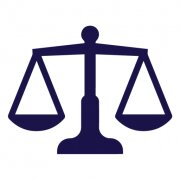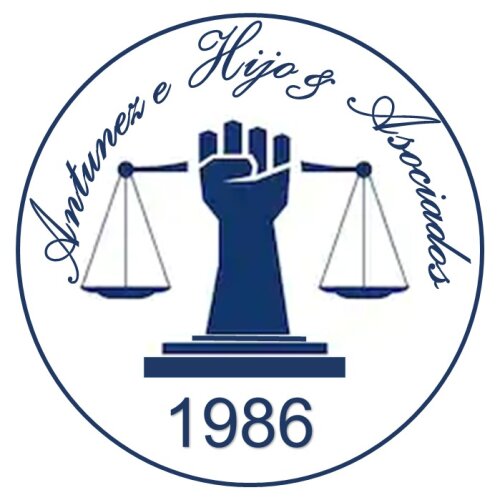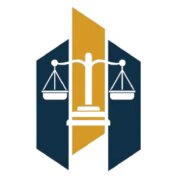Best Civil & Human Rights Lawyers in Argentina
Share your needs with us, get contacted by law firms.
Free. Takes 2 min.
Or refine your search by selecting a city:
List of the best lawyers in Argentina
About Civil & Human Rights Law in Argentina
Argentina has a rich history of civil and human rights advocacy, marked by both significant progress and challenges. The country is a signatory to various international human rights treaties and has enshrined numerous rights in its Constitution since the 1994 reform. These rights include non-discrimination, freedom of expression, the right to a fair trial, and rights to education, healthcare, and a healthy environment. The nation's commitment to these principles underlines the importance of protecting civil liberties and promoting social justice.
Why You May Need a Lawyer
There are several situations where individuals may require legal assistance in civil and human rights matters in Argentina:
- Discrimination or Harassment: Whether in the workplace, educational institutions, or broader society, instances of discrimination based on race, gender, sexual orientation, or other factors may require legal intervention.
- Violation of Privacy: Unlawful surveillance, data breaches, or unauthorized use of personal information can infringe on an individual’s right to privacy.
- Freedom of Expression: Cases involving censorship, defamation, or suppression of speech may necessitate legal defense.
- Labor Rights: Issues such as unfair dismissal, exploitation, and unsafe working conditions require attention and, often, legal redress.
- Access to Public Services: Denial or unequal treatment in accessing healthcare, education, or housing services could lead to seeking legal help.
- Police Misconduct and Abuse: Victims of unlawful detention or excessive use of force may need legal action to uphold their rights.
Local Laws Overview
Argentina's legal framework supports civil and human rights through a combination of constitutional provisions, national laws, and international agreements. Key aspects include:
- The National Constitution: Guarantees fundamental rights such as equality, freedom, and the right to personal privacy.
- Anti-Discrimination Law: Provides protections against discrimination and promotes equality across various areas of society.
- Data Protection Law: Regulates the collection, storage, and use of personal data and ensures individuals' privacy rights.
- The Labor Contract Law: Outlines the rights and obligations of workers and employers, including working conditions and employment security.
- International Treaties: Includes the American Convention on Human Rights and the Universal Declaration of Human Rights, which have constitutional status and guide judicial decisions.
Frequently Asked Questions
What constitutes a human rights violation in Argentina?
Any infringement on the fundamental freedoms and rights guaranteed by the Argentine Constitution and international treaties may constitute a violation.
How can I file a complaint about discrimination?
You can file a complaint with INADI (National Institute Against Discrimination, Xenophobia, and Racism) or seek legal assistance to pursue civil litigation.
What should I do if my employer violates labor rights?
Contact the Ministry of Labor or a labor attorney to discuss your rights and possible legal actions.
Is freedom of expression protected in Argentina?
Yes, freedom of expression is protected by the Constitution, though there are limitations related to national security, defamation, and public morality.
Can I represent myself in a civil & human rights case?
While it is possible to represent yourself, it is highly recommended to seek legal advice to navigate complex legal frameworks effectively.
Are there any legal protections against police misconduct?
Yes, there are mechanisms and legal avenues to address abuses, including filing complaints with the Internal Affairs Division or pursuing criminal charges.
What is the role of NGOs in civil rights advocacy?
Non-governmental organizations play a crucial role in monitoring human rights, providing support to victims, and advocating for policy changes.
How does Argentina protect data privacy?
The country follows the Data Protection Law, which aligns with international standards to safeguard personal data and privacy.
Are there specific human rights for indigenous communities?
Yes, the Constitution and additional laws recognize and protect the rights of indigenous peoples, including land rights and cultural preservation.
Where can I access free legal aid for civil rights issues?
Several organizations, including governmental and non-profit entities, offer legal aid services. Examples include the Office of the Public Defender and NGOs like CELS (Center for Legal and Social Studies).
Additional Resources
For those seeking further assistance or information, consider the following resources:
- CELS (Center for Legal and Social Studies): A leading organization in human rights advocacy and legal support.
- INO (National Institute Against Discrimination, Xenophobia, and Racism): Offers guidance and handles discrimination complaints.
- Office of the Public Defender: Provides free legal representation and advice.
- Ministry of Justice and Human Rights: Offers resources and information on legal rights and services.
- Amnesty International - Argentina: Engages in human rights education and advocacy across the country.
Next Steps
If you believe your civil or human rights have been violated, consider the following next steps:
- Document Everything: Keep detailed records and evidence of the incident or issue.
- Seek Legal Advice: Contact a qualified civil and human rights lawyer to discuss your case and available legal remedies.
- File a Complaint: If applicable, submit a complaint to relevant bodies such as INADI or labor authorities.
- Engage with NGOs: Reach out to organizations like CELS for additional support and resources.
- Stay Informed: Educate yourself about your rights and the legal processes involved to better advocate for your situation.
Lawzana helps you find the best lawyers and law firms in Argentina through a curated and pre-screened list of qualified legal professionals. Our platform offers rankings and detailed profiles of attorneys and law firms, allowing you to compare based on practice areas, including Civil & Human Rights, experience, and client feedback.
Each profile includes a description of the firm's areas of practice, client reviews, team members and partners, year of establishment, spoken languages, office locations, contact information, social media presence, and any published articles or resources. Most firms on our platform speak English and are experienced in both local and international legal matters.
Get a quote from top-rated law firms in Argentina — quickly, securely, and without unnecessary hassle.
Disclaimer:
The information provided on this page is for general informational purposes only and does not constitute legal advice. While we strive to ensure the accuracy and relevance of the content, legal information may change over time, and interpretations of the law can vary. You should always consult with a qualified legal professional for advice specific to your situation.
We disclaim all liability for actions taken or not taken based on the content of this page. If you believe any information is incorrect or outdated, please contact us, and we will review and update it where appropriate.
Browse civil & human rights law firms by service in Argentina
Argentina Attorneys in related practice areas.
Browse civil & human rights law firms by city in Argentina
Refine your search by selecting a city.
















